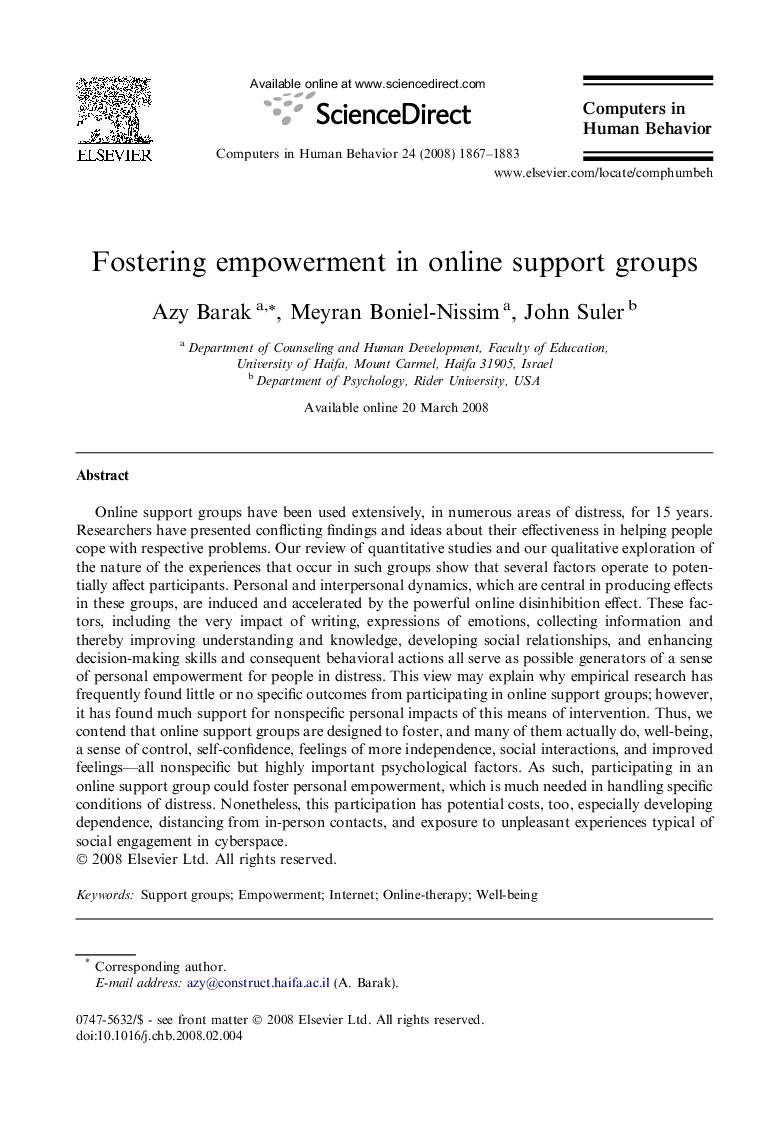| Article ID | Journal | Published Year | Pages | File Type |
|---|---|---|---|---|
| 351933 | Computers in Human Behavior | 2008 | 17 Pages |
Online support groups have been used extensively, in numerous areas of distress, for 15 years. Researchers have presented conflicting findings and ideas about their effectiveness in helping people cope with respective problems. Our review of quantitative studies and our qualitative exploration of the nature of the experiences that occur in such groups show that several factors operate to potentially affect participants. Personal and interpersonal dynamics, which are central in producing effects in these groups, are induced and accelerated by the powerful online disinhibition effect. These factors, including the very impact of writing, expressions of emotions, collecting information and thereby improving understanding and knowledge, developing social relationships, and enhancing decision-making skills and consequent behavioral actions all serve as possible generators of a sense of personal empowerment for people in distress. This view may explain why empirical research has frequently found little or no specific outcomes from participating in online support groups; however, it has found much support for nonspecific personal impacts of this means of intervention. Thus, we contend that online support groups are designed to foster, and many of them actually do, well-being, a sense of control, self-confidence, feelings of more independence, social interactions, and improved feelings—all nonspecific but highly important psychological factors. As such, participating in an online support group could foster personal empowerment, which is much needed in handling specific conditions of distress. Nonetheless, this participation has potential costs, too, especially developing dependence, distancing from in-person contacts, and exposure to unpleasant experiences typical of social engagement in cyberspace.
